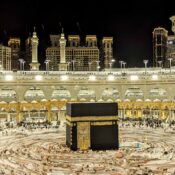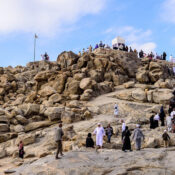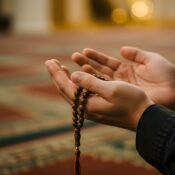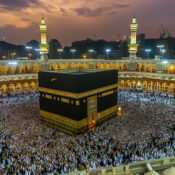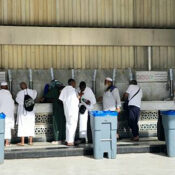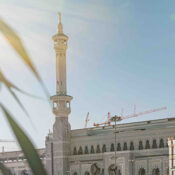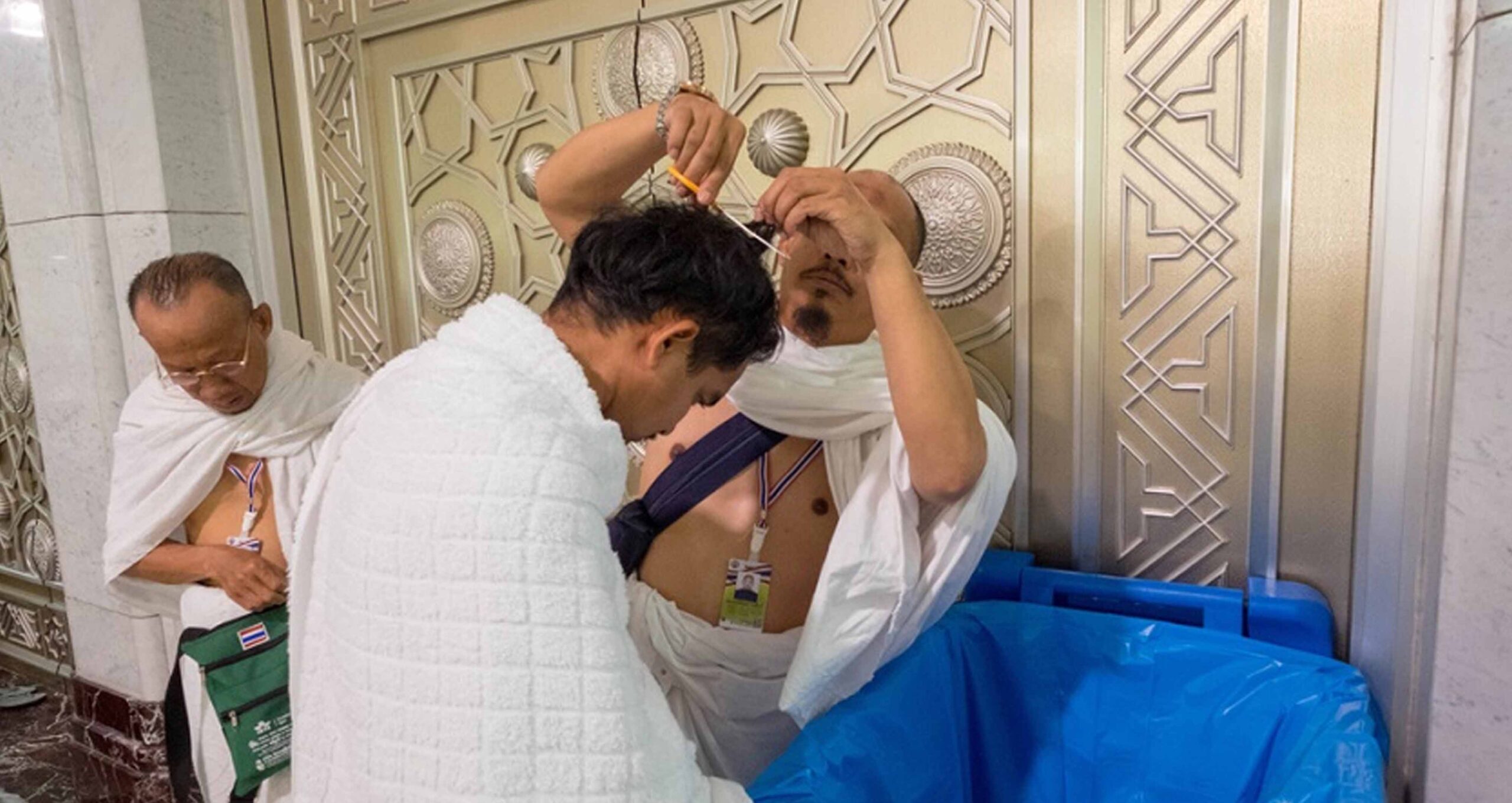
Halq and Taqsir: Umrah Haircut Rules
Halq and Taqsir are among the most essential rites marking the completion of the sacred pilgrimage to Makkah. These haircut rituals are not just physical acts — they carry deep spiritual significance, representing humility, obedience, and renewal. Understanding the correct Umrah haircut rules is crucial for every pilgrim, ensuring that their pilgrimage is accepted and performed according to the Sunnah of Prophet Muhammad (ﷺ).
What Are Halq and Taqsir?
- Halq (حلق): Refers to shaving the entire head for men.
- Taqsir (تقصير): Refers to shortening or trimming a small portion of the hair.
For men, either Halq or Taqsir is acceptable (though Halq is preferred).
For women, only Taqsir is performed — by cutting a fingertip’s length from the ends of the hair.
These rites mark the pilgrim’s exit from the state of Ihram, symbolizing spiritual purification and renewal.
Why the Umrah Haircut Is So Important
The haircut is not merely symbolic — it’s a condition for exiting Ihram. Without performing Halq or Taqsir, a pilgrim remains in the state of Ihram, meaning all the restrictions of Ihram continue to apply.
Spiritually, it signifies:
- Detachment from worldly vanity and self-pride.
- Humility before Allah, as all pilgrims look alike without distinction.
- A fresh start, representing forgiveness and purification from sins.
Islamic Significance and Historical Context
According to Ismail Ibn Kathir (رحمه الله), the Prophet Muhammad (ﷺ) once saw a vision where he entered Makkah and performed Tawaf around the Kaaba. Hajj Packages 2026 In that dream, some of his companions had shaved their heads while others had trimmed their hair.
This vision was later fulfilled during Hajjat al-Wida (The Farewell Hajj), where the Prophet (ﷺ) himself performed Halq — shaving his entire head. He began from the right side and then moved to the left, setting a clear Sunnah for his followers.
Hadith References
- Abdullah ibn Umar (RA) narrated that the Prophet (ﷺ) said: “O Allah! Have mercy on those who shave their heads.”
His companions asked: “And those who shorten their hair, O Messenger of Allah?”
The Prophet (ﷺ) repeated the dua for those who shaved their heads three times and then once for those who shortened their hair.
— (Sahih al-Bukhari) - Ali (RA) reported: “The Messenger of Allah (ﷺ) forbade women from shaving their heads.”
— (Sunan an-Nasa’i) - Qur’anic Reference: “You will surely enter the Sacred Mosque, if Allah wills, in security — with your heads shaved and hair shortened, not fearing.”
— (Surah Al-Fath, 48:27)
These references highlight the virtue of Halq and the importance of Taqsir as acts of submission to Allah.
Quick Guide to Umrah Haircut Rules
1. Timing
Perform Halq or Taqsir after completing Tawaf and Sa’i — the final steps of Umrah.
Cutting hair before these rituals invalidates the act.
2. Men’s Haircut Rules
- Halq (Shaving): Shaving the entire head is preferred and earns greater reward.
- Taqsir (Shortening): Cutting hair evenly from all parts of the head.
- Partial shaving is not allowed.
- Already bald? Run the razor gently over the scalp to complete the ritual.
3. Women’s Haircut Rules
- Women perform Taqsir only — cutting about one fingertip’s length from all ends of the hair.
- Shaving the head is prohibited for women.
- Even women with short hair must trim slightly from all ends.
4. Intention (Niyyah)
Before the haircut, make the intention:
“O Allah, I perform this Halq/Taqsir to exit the state of Ihram for Your sake alone.”
5. Preferred Location
The haircut can be done anywhere in Makkah, though many pilgrims prefer to do it near Masjid al-Haram. Licensed barbers are available outside the mosque area.
6. Supplications (Dua)
While performing the haircut, recite:
“اللهم تقبل مني كما تقبلت من حبيبك محمد ﷺ”
O Allah, accept this from me as You accepted it from Your beloved Prophet Muhammad (ﷺ).
You may also make personal duas for forgiveness, blessings, and renewal.
7. Cleanliness & Hygiene
- Use clean, sterilized tools.
- Dispose of hair properly — avoid leaving it in public or sacred areas.
- Perform wudu (ablution) if necessary afterward.
8. Charity (Sadaqah)
After the haircut, giving a small sadaqah is a recommended act of gratitude. This reflects humility and a willingness to share blessings.
Halq and Taqsir for Hajj Pilgrims
The rules differ slightly for Hajj, depending on the type of pilgrimage:
- Hajj al-Tamattu: Haircut is performed twice — once after Umrah and again after Hajj.
- Hajj al-Ifrad & Qiran: Halq or Taqsir is done after stoning the Jamarat al-Aqaba on the 10th of Dhul-Hijjah.
Many pilgrims perform Halq in Mina, where barbers are readily available. Always choose licensed barbers to ensure hygiene and safety.
Rewards and Virtues of Halq and Taqsir
Performing Halq, in particular, brings multiple rewards and divine mercy as mentioned by the Prophet (ﷺ). It symbolizes:
- Complete submission to Allah’s command.
- Equality among believers — removing distinctions of wealth and status.
- Spiritual purification, as pilgrims shed both sin and pride.
- A new beginning, marked by physical and spiritual renewal.
Additional Pre-Umrah Grooming Tips
Before entering Ihram:
- Trim your nails and remove unwanted body hair.
- Avoid perfumes or scented products after donning Ihram.
- Keep grooming tools clean and personal to prevent infection.
Conclusion
Halq and Taqsir are more than haircut rituals — they are acts of humility, sacrifice, and devotion that complete your journey of Umrah Packages 2025. Each snip or shave symbolizes surrender to Allah’s will and marks a pilgrim’s transformation into a purified state.
As you complete your Umrah with these final rites, remember the words of the Prophet (ﷺ):
“O Allah, have mercy on those who shave their heads.”
Whether through Halq or Taqsir, may your actions be accepted, your sins forgiven, and your soul renewed.
FAQs About Halq and Taqsir
1. Can I perform Taqsir instead of Halq?
Yes. Both are valid, but Halq is more virtuous for men.
2. Do women have to shave their heads?
No. Women should only trim a fingertip’s length from all ends of their hair.
3. Can I perform Halq before completing Sa’i?
No. It must be done after finishing all Umrah rituals.
4. Is it necessary to perform Halq inside the Haram?
No, it can be done anywhere in Makkah.
5. What if I’m bald?
You must still pass the razor over your head to complete the ritual.
6. Can I use an electric trimmer for Taqsir?
Yes, as long as it shortens the hair visibly and evenly.
7. Is Sadaqah compulsory after Halq or Taqsir?
Not compulsory, but highly recommended as a gesture of gratitude.


